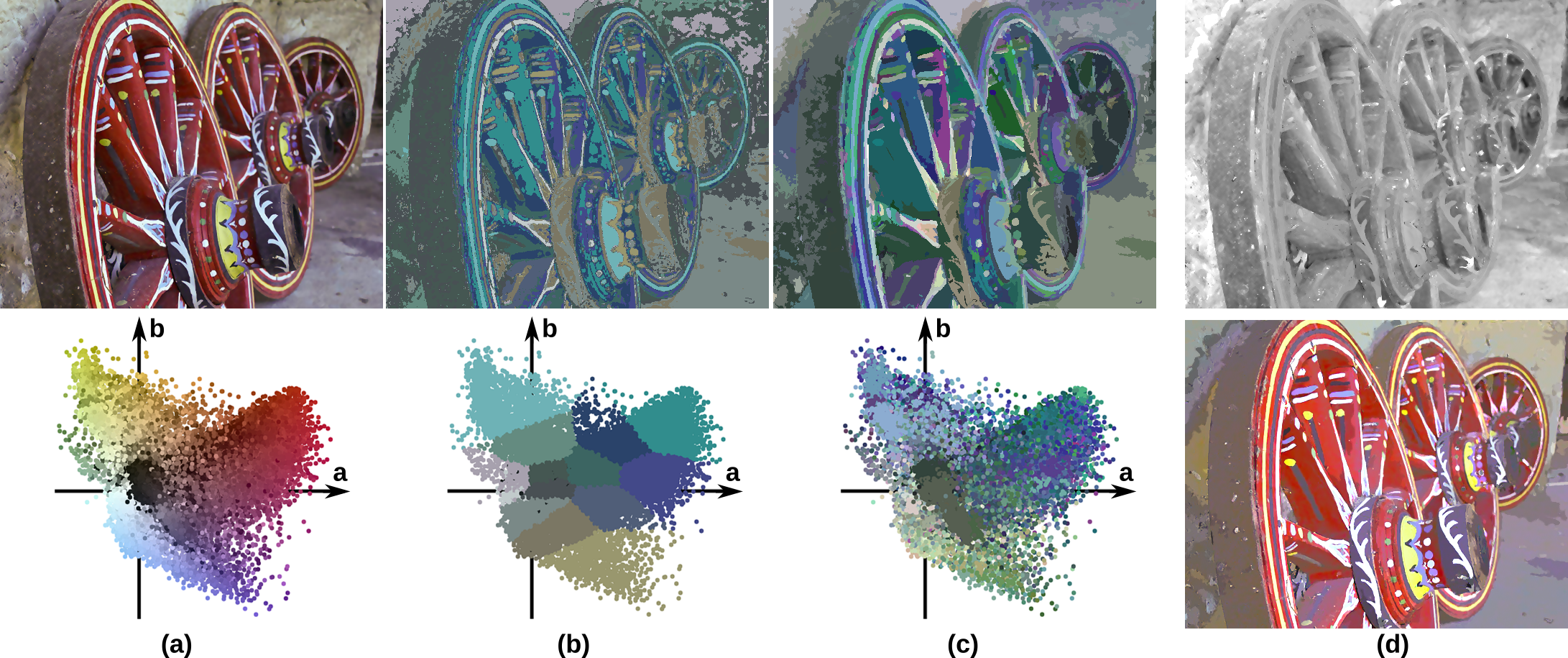
Abstract
Decomposing an input image into its intrinsic shading and reflectance components is a long-standing ill-posed problem. We present a novel algorithm that requires no user strokes and works on a single image. Based on simple assumptions about its reflectance and luminance, we first find clusters of similar reflectance in the image, and build a linear system describing the connections and relations between them. Our assumptions are less restrictive than widely-adopted Retinex-based approaches, and can be further relaxed in conflicting situations. The resulting system is robust even in the presence of areas where our assumptions do not hold. We show a wide variety of results, including natural images, objects from the MIT dataset and texture images, along with several applications, proving the versatility of our method.
Files
BibTeX
Acknowledgements
We would like to express our gratitude to the anonymous reviewers for their valuable comments. Thanks also to Martin Kiefel and Shen Jianbing for sending us images. This research was partially funded by the European Commission, Seventh Framework Programme, through the projects GOLEM (Marie Curie IAPP, grant agreement no.: 251415) and VERVE (Information and Communication Technologies, grant agreement no.: 288914), the Spanish Ministry of Science and Technology (TIN2010–21543) and a generous gift from Adobe Systems Inc. Elena Garces is also funded by a grant from the Gobierno de Aragón.